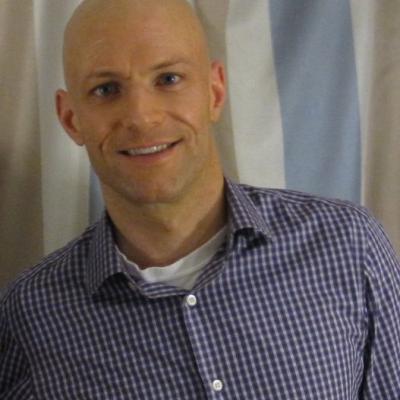
The Graduate Center of the City University of New York
New York, New York
Ph.D., Comparative Literature, May 2009 (with distinction) Dissertation: “Freedom Turned Against Itself: Studies in the Literature of Suicide"
Advisor: Vincent Crapanzano, Distinguished Professor of Comparative Literature
M.A., Comparative Literature, February 2004
Thesis: “Darstellung als Umweg: Writing and Memory in Benjamin’s Berliner Chronik”
Columbia University, Graduate School of Arts and Sciences
New York, New York
M.A., Philosophy, May 1997
Columbia University, Columbia College
New York, New York
B.A., Philosophy, May 1996
Thesis: “David Hume and the Rise of Taste”
Dr. Christopher Trogan is a professional educator with sixteen years of higher education experience. Most recently, he was Associate Professor of English at the United States Merchant Marine Academy in Kings Point, New York. He is currently Adjunct Associate Professor of Philosophy at John Jay and Associate Faculty of Interdisciplinary Studies (specializing in Philosophy) at the Gallatin School of Individualized Study of New York University. Dr. Trogan is also Adjunct Associate Professor of English at Baruch College where he teaches in the Great Works of Literature Program. Dr. Trogan received a B.A. and M.A. in Philosophy from Columbia University and an M.A. and Ph.D. in Comparative Literature from the Graduate School and University Center of the City University of New York. Dr. Trogan's areas of research and publication focus on the interrelationship between literature, ethics, and aesthetics specifically in 19th century German philosophy and literature. He has published several essays in this area including "The Paradox of Fictional Belief and Its Moral Implications" and "Feelings and Fictions: Exploring Emotion and Belief" and has also chaired panels at several international conferences.
Trogan, Christopher. “Rilke’s Fourth Duino Elegy as Philo-Poetic Dialectic.” Interdisciplinary Literary Studies: A Journal of Criticism and Theory. Vol. 16, No. 2. 2014
Trogan, Christopher. “‘Narrative Impasse and Epistemological Terror in Edgar Allen Poe’s ‘The Fall of the House of Usher.’” Perspectives on Edgar Allan Poe: Collected Essays. Ed. Gerry Del Guercio. Bethlehem, PA: Lehigh UP. Forthcoming, 2015.
Trogan, Christopher. “The Unspoken Possibility of Language: Poetic Silence in Mallarmé and Rilke.” Pivot: A Journal of Interdisciplinary Studies and Thought. Vol. 2, No.1 2014
Trogan, Christopher. “What is Literature?” The Pocket Instructor: Literature. Ed. Diane Fuss and William. Princeton, NJ: Princeton University Press. Forthcoming, 2015.
Trogan, Christopher. “Suicide and Freedom from Suffering in Schopenhauer’s Die Welt als Wille und Vorstellung” Open Journal of Philosophy. Vol.3 No.1, February 2013.
Trogan, Christopher. “Suicidal Discourses: Interdisciplinary Approaches to the Discussion of Suicide. Eleventh International Conference on New Directions in the Humanities. Budapest, Hungary. 19-21 June 2013.
Trogan, Christopher. “The Humanities Sea Project (or The Project of the Humanities at Sea)” Maritime Education Summit, SUNY Maritime College. New York. April 7-April 9 2013.
Trogan, Christopher. “Suicide and the Limits of Narrative: Ludwig Binswanger’s “Case of Ellen West.” 1st Global Interdisciplinary Conference on Suicide. November 4 –November 7 2010. Prague, Czech Republic
Trogan, Christopher. “Suicide and Moral Freedom in Schiller’s Die Braut von Messina.” Aesthetics and Modernity from Schiller to Marcuse. Institute of Germanic and Romance Studies, University of London. 10 September 2009.
Trogan, Christopher. “Suicidal Fatalism in Ludwig Binswanger’s Case of Ellen West.” "Arrivals and Departures.” Annual Meeting of the American Comparative Literature Association. Long Beach, California. 25 April 2009.
Trogan, Christopher and Dean Kowalski, “The Paradox of Fictional Belief and Its Moral Implications in Jaws,” Steven Spielberg and Philosophy: We’re Gonna Need a Bigger Book (Lexington: University Press of Kentucky, 2008), p. 69-81.
Trogan, Christopher. “Feelings and Fictions: Exploring Emotion in Belief in Fight the Future” in The Philosophy of the X-Files. Ed. Dean Kowalski (University Press of Kentucky, 2007).